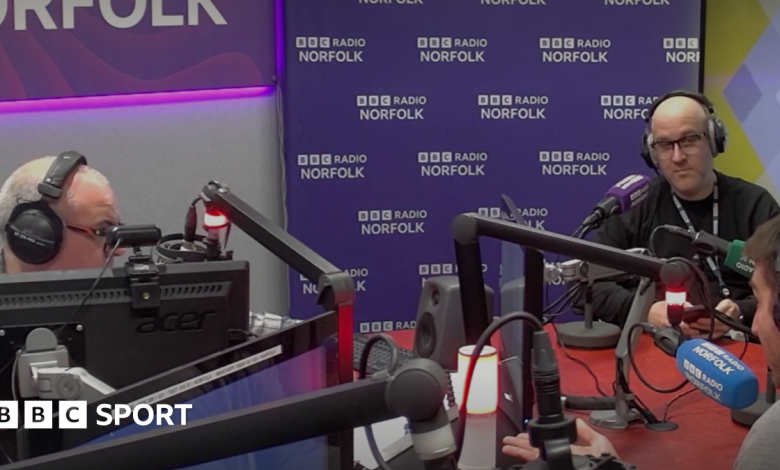Watch: Canary Call special after Liam Manning sacked

Liam Manning’s Departure from Norwich City: A Chapter Closes
In a decisive move that sent ripples through the football community, Norwich City terminated Liam Manning’s tenure as manager on November 8, 2024, following an alarming streak of seven consecutive home defeats. The decision, announced at 21:03 GMT, marked the culmination of mounting pressure and growing discontent among supporters who had witnessed their beloved team struggle to maintain competitive form. The final straw appeared to be the defeat against Leicester City, which not only extended their dismal home record but also pushed the club’s leadership to make the difficult call. Manning’s dismissal reflects the harsh reality of modern football management, where results ultimately dictate longevity, regardless of other factors that might be at play behind the scenes.
The announcement triggered an immediate and passionate response from the Norwich faithful, with the BBC quickly organizing a special edition of Canary Call to capture the breaking news and fan reactions. Hosted by the familiar voices of Chris Goreham, Rob Butler, and Phil Daley, the hour-long program became a virtual gathering place for supporters to process their emotions and share perspectives on the club’s decision. The broadcast served as more than just a news delivery mechanism; it became a communal space where the collective identity of Norwich supporters could find expression in a moment of significant change. The special coverage highlighted the crucial role that local media plays during pivotal moments in a club’s journey, providing both information and emotional catharsis for invested fans.
Perhaps most telling about the situation was the raw, unfiltered reaction from supporters in the immediate aftermath of the Leicester defeat. BBC reporter Rob Butler positioned himself among fans in the Barclay Stand to capture genuine responses before the sacking was officially announced, while his colleague Robby West documented a spontaneous protest that formed outside Carrow Road. These scenes painted a picture of a fanbase that had reached its breaking point, with frustrations boiling over into visible demonstrations. The footage of these protests served as powerful visual evidence of the disconnect that had developed between the team’s performances under Manning and the expectations of those who follow Norwich City with unwavering loyalty despite difficult circumstances.
The timing of Manning’s dismissal highlights the precarious nature of football management and the increasing impatience within the modern game. While seven consecutive home losses represents an objectively poor record by any standard, the decision also raises questions about the structural support provided to managers and the realistic timeframes given for implementing lasting change at struggling clubs. Norwich City’s decision-makers now face the challenging task of identifying a successor who can reverse the negative momentum while reconnecting with a fanbase that has experienced significant disappointment. This transition period becomes crucial not only for on-field performances but also for rebuilding fractured relationships with supporters who invest emotionally and financially in the club’s journey.
What makes this situation particularly poignant is the human element behind the clinical decision. For Manning, this represents more than just a professional setback—it’s a personal dream interrupted and public judgment of his capabilities as a football manager. For players, it creates uncertainty about their futures and potentially disrupts relationships built with the coaching staff. For backroom staff aligned with Manning, it may mean further changes and possible job insecurity. Behind every managerial dismissal lies a complex web of human consequences that extends far beyond the simple football metrics of wins, losses, and league positions, affecting families and individuals whose lives are deeply intertwined with the club’s fortunes.
As Norwich City now looks toward its future, the challenge becomes not just about finding a new manager but about resetting the club’s trajectory in a way that honors its traditions while adapting to the demands of contemporary football. The footage of protesting fans outside Carrow Road serves as both a warning and a reminder of what’s at stake—the emotional contract between a football club and its community. Whoever steps into the managerial role inherits not just a team in sporting difficulty but the responsibility of rekindling hope among supporters who have weathered this disappointing chapter. The story of Liam Manning’s departure ultimately represents a microcosm of modern football’s unforgiving nature, where sentiment must often yield to results, and where the beautiful game’s business realities can sometimes overshadow its deeply human dimensions.








